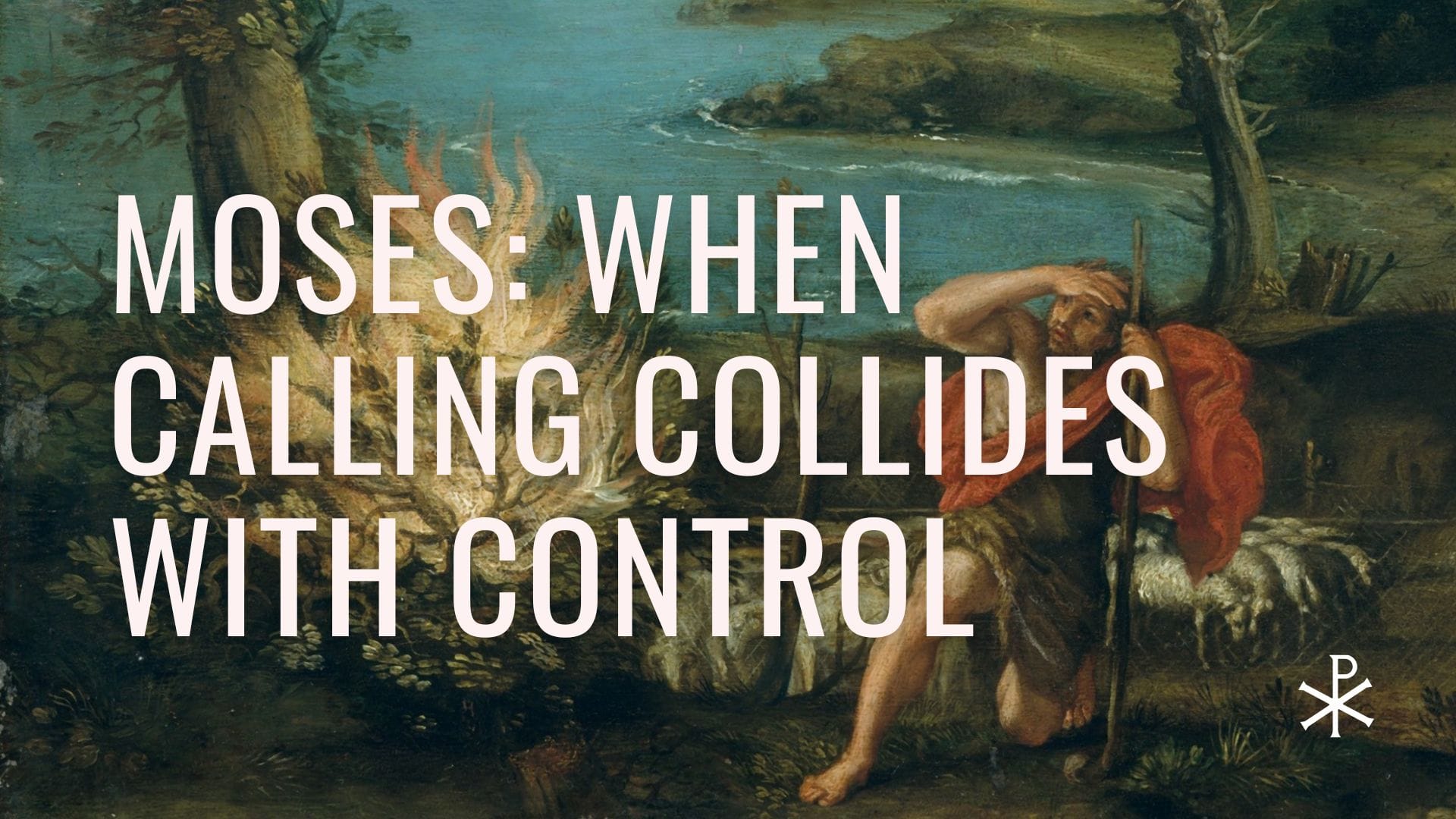Redeemed Failures, Day 2: Moses — When Calling Collides with Control
Discover how Moses’ failure and long years of obscurity became the very ground where God prepared him for faithful, grace-filled leadership.

Exodus 2:11–25; Exodus 3:1–12
The Prince Who Could Not Wait
He had grown up surrounded by stone columns and polished floors, dressed in Egyptian linen, educated in Pharaoh’s household. Yet Moses knew he was not truly Egyptian. Nursed by his Hebrew mother, aware of his people’s suffering, he carried a divided identity in his bones. One day, when he was around forty years old, that tension boiled over.
He saw an Egyptian beating a Hebrew. And something in him snapped.
We’re told Moses looked this way and that, checking to see if the coast was clear. Then he struck the Egyptian down and hid the body in the sand (Exodus 2:11–12). Perhaps he thought this would be his moment. His people would see his courage, rally behind him, and the deliverance of Israel would begin. But it didn’t. The next day, two Hebrews were fighting, and when Moses tried to intervene, they turned on him. “Who made you a ruler and judge over us?” the man sneered (v. 14).
Word got out. Pharaoh found out. Moses ran.
The Long Silence of Midian
He fled to Midian, a place far from Egypt, far from the corridors of power, and far from the people he thought he was called to save. He settled down. Took a wife. Tended sheep. For forty years, nothing heroic happened. No miracles. No plagues. Just quiet hills, woolen backs, and desert wind.
We don’t often pause here. We easily rush from Moses’ flight in chapter 2 to the burning bush in chapter 3. But there’s a long silence between them. Decades of waiting. Of obscurity. Of forgotten potential.
And yet it was there, in the stillness of Midian, that God was preparing him. Moses had tried to act on calling without surrender. He had sensed the right burden, but wielded it with the wrong hands. Deliverance would come, but not by force. Not by buried bodies. Not by cleverness or timing. God would bring it. And Moses would have to learn how to follow before he could lead.
A Bush Burned but Not Consumed
One day, while tending sheep near Mount Horeb, Moses saw a bush on fire, but not burning up. And from that flame, God called his name. Twice: “Moses, Moses.” The same man who once killed a man in confidence now hid his face in fear. The Lord declared, “I have seen the affliction of my people... I know their sufferings... I have come down to deliver them” (Exodus 3:7–8). And then, the shock: “I will send you.”
This time, Moses didn’t leap at the opportunity. He hesitated. Argued. Claimed he wasn’t the one. Forty years ago, he had felt ready, but wasn’t. Now, he felt entirely unready, and that was the beginning of real readiness. God didn’t send him in his strength. He sent him in his weakness. “I will be with you,” the Lord said (v. 12). That would be enough.
Restoration Through Dependency
Moses didn’t get a second chance because he had cleaned up his past. He was restored because God never revoked His calling, and because broken men make better servants than self-assured ones.
He would still wrestle with frustration, fear, and fatigue in the years to come. He would still have moments of failure. But he had been broken in just the right way. And now, finally, he could lead a people whose deliverance would come not by his hand, but by the Lord’s.
A Quiet Word for Today
Some of the most painful failures don’t come from sin alone, but from trying to do God’s work in our own strength. Maybe you’ve felt called, only to watch the doors slam shut, or your best efforts unravel.
Moses’ story doesn’t give us formulas. But it does remind us that God is not in a hurry. He often breaks before He builds. And He prepares His servants not with applause, but with obscurity.
Your Midian years are not wasted. The silence is not absence. And when the call comes again, whether it’s public or private, you may just discover that weakness and waiting made room for new and unexpected grace.
Enjoy all 31 devotionals in the Redeemed Failures series here —stories of grace, second chances, and the God who still restores.
